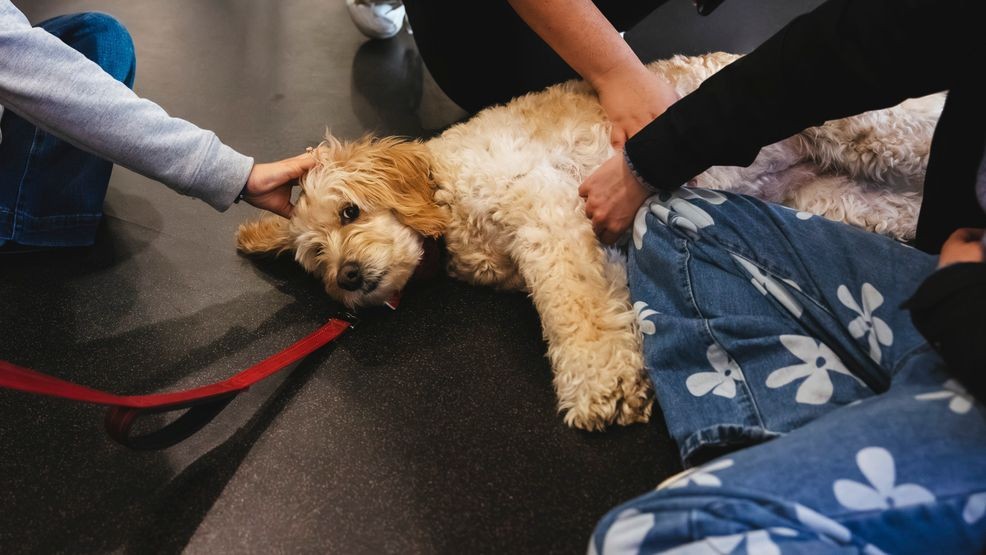
SEATTLE — First-year college students who regularly interacted with therapy dogs during the semester reported fewer signs of stress and depression, according to a new study from Washington State University.
The study found that students who interacted with therapy dogs in “unstructured sessions” over several months not only experienced reduced stress and depression, but also showed increased self-compassion.
SEE ALSO | Honey bees at risk for colony collapse from longer, warmer fall seasons, per WSU research
The research suggested that regular, informal interactions with therapy dogs can provide sustained mental health benefits.
“We know that structured programs help, but we wanted to see if giving students complete autonomy in how they interact with the dogs could be just as beneficial,” said Patricia Pendry, the study’s corresponding author and a professor of human development at WSU. “This mirrors real-life pet ownership more closely and may make it easier for universities to implement similar programs.”
The study involved 145 first-year students who had left family pets behind to attend college. Participants were randomly assigned to either a seven-session drop-in therapy dog program or a waitlisted control group.
Students in the program could interact with therapy dogs in a relaxed environment on the WSU Pullman campus. The dogs were provided by Palouse Paws, a local representative of Pet Partners, a national organization specializing in animal-assisted interventions.
Researchers found that students in the therapy dog group had significantly lower rates of depression, stress, and worry compared to those in the control group. They also reported increased self-compassion, which is linked to better emotional regulation and overall well-being.
SEE ALSO |Meet the cuddly Golden Retriever comfort dogs at Mercer Island High School
“It’s likely a combination of sitting quietly, petting the dog, talking to other students, and engaging with the handlers that contributes to student well-being,” Pendry said.
Students who attended multiple sessions were noted to see the most benefit.
“Regular, sustained interactions with therapy dogs seem to have a cumulative effect,” she said. “This suggests that universities may want to consider offering ongoing unstructured programs rather than one-time events.”
With rising mental health concerns among college students, Pendry hopes WSU’s research will encourage more schools to offer similar drop-in therapy dog programs. She emphasized the need for careful, evidence-based application.
“This is a relatively easy, low-cost way to support student well-being,” Pendry said. “You don’t need a structured curriculum—just an inviting space where students can interact with the dogs and their handlers on their own terms in a way that ensures animal welfare and participant safety.”
WSU plans to expand its research to examine whether students who did not leave childhood pets at home experience similar benefits.
This post was originally published on this site be sure to check out more of their content.










































